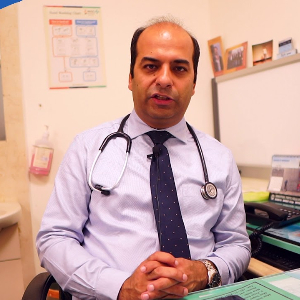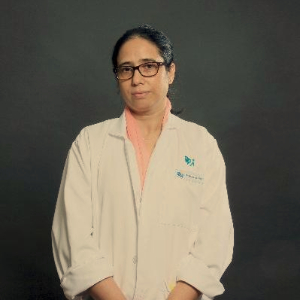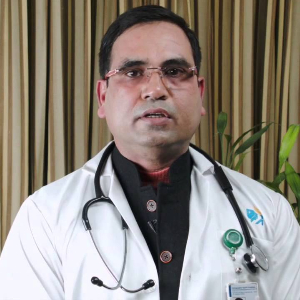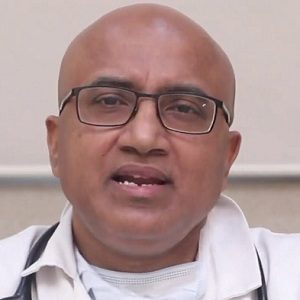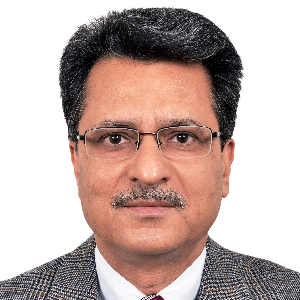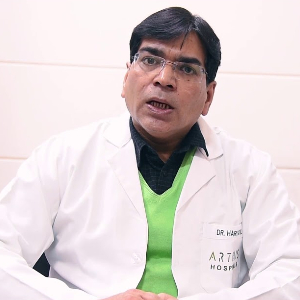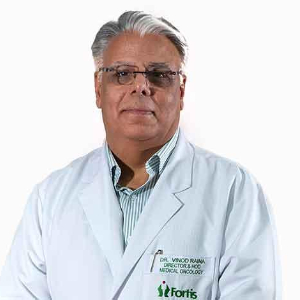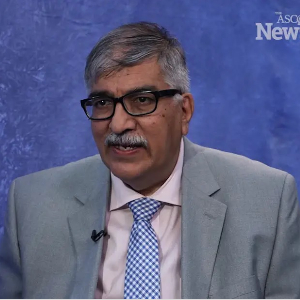Best Skin / Soft tissues cancer Doctors in india
- Medical Oncologist, Gurugram, India
- Over 16 years’ experience
Profile Highlights:
- Dr. Ankur Bahl is a reputed medical oncologist in India.
- With over 16 years of experience, Dr. Bahl is considered for his expertise in treating Multiple Myeloma, Lymphoma, Leukemia, Gastrointestinal tumors, Gynaecological Tumors, Head, Neck, and Brain Tumors.
- Surgical Oncologist, New Delhi, India
- Over 20 years’ experience
Profile Highlights:
- One of the finest oncologists in India, Dr. Ruqaya Ahmad Mir has been practicing surgical oncology for the past 20 years and is currently functioning as a Senior Consultant, Oncology at Indraprastha Apollo Hospital, New Delhi.
- Dr. Ruqaya Mir is known for her outstanding performance in some of the advanced surgical techniques which include Uterus and Ovary and Limb Conservation surgery and Cytoreductive surgery and Hyperthermic Intraperitoneal chemotherapy for advanced colorectal and recurrent ovarian malignancies.
- She is also a well trained Robotic Surgeon practicing implementation of minimal invasion in surgical oncology.
- Medical Oncologist, New Delhi, India
- Over 20 years’ experience
Profile Highlights:
- Dr. P K Das is one of the best Oncologists in India with an extensive career as the Senior Consultant Medical Oncologist, the Hemato- Oncologist, and Academic Coordinator of Dept of medical oncology at the Apollo Cancer Institute in New Delhi.
- With many years of experience at the Apollo Hospital, Dr. P K Das has been diligently treating patients and proactively contributing to the medical sector by working alongside topmost doctors in medical oncology.
- Medical Oncologist, New Delhi, India
- Over 15 years experience
Profile Highlights:
- Dr. Dipanjan Panda is one of the well-known medical oncologists in India, having 15 years of expertise in treating bone and soft tissue cancers and gastrointestinal cancers.
- He is credited with starting the country’s first anticancer departments and PDCC program. Dr. Panda developed a medical oncology unit at Indraprastha Apollo Hospital in New Delhi, in association with the Institute of Liver and Biliary Sciences. He is currently working at Indraprastha Apollo Hospital in New Delhi as a Senior Consultant, Medical Oncology.
- Dr. Panda has written twenty peer-reviewed papers in national and international journals. He has presented numerous talks at global forums.
- Medical Oncologist, New Delhi, India
- Over 20 years’ experience
Profile Highlights:
- Dr. Amit Agarwal is a highly successful Medical Oncologist whose primary focus lies on pain management in cancer patients and provides treatment specifically for the management of early stages of Hodgkin’s disease and Non-Hodgkin Lymphoma, Non-Metastatic Ewing’s Sarcoma, Cardiopulmonary Resuscitation, and emergency medications for cancer patients.
- Dr. Agarwal has been part of other prestigious cancer hospitals where he has helped in the treatment of patients with various types and rare cases of cancer.
- Medical Oncologist, Gurugram, India
- Over 30 years’ experience
Profile Highlights:
- Dr. Ashok Kumar Vaid is a reputed Medical Oncologist in India with expertise in the treatment of blood, lungs, skin, breast, and gastrointestinal cancers.
- He is famously known for performing among the first 25 bone marrow transplants in a private hospital in India.
- Dr. Ashok Vaid’s primary area of focus lies in Leukemia, Lymphoma, Solid tumors, and the treatment of organ-specific benign and malignant tumors.
- He prefers to treat his patients using non-surgical and pain-free techniques that include hormone therapy, biological therapy, targeted therapy, and chemotherapy.
- Hematologist and Medical Oncologist, Gurugram, India
- Over 30 years’ experience
Profile Highlights:
- Dr. Hari Goyal is the head of the Oncology unit comprising some of the finest oncologists in the country. The team effort gives an edge & advantage to the patients’ management.
- His contribution to oncology is immense & has developed drugs for the management of chemotherapy side effects. This development has helped millions of cancer patients since 2004.
- Dr. Hari Goyal was a part of a large number of clinical trials of cancer research including one of the FDA audited trials.
- Medical Oncologist, Gurugram, India
- Over 38 years’ experience
Profile Highlights:
- Dr. Vinod Raina is among the top and renowned Medical Oncologists in India with more than 38 years of extensive experience in the field.
- His primary expertise lies in Chemotherapy and is the first to perform high-dose chemotherapy in India. He also performed the first peripheral blood stem cell transplant in India.
- He has performed more than 250 bone marrow transplants and over 70 allotransplants for different types of cancers.
- Medical Oncologist, New Delhi, India
- Over 20 years experience
Profile Highlights:
- Dr. Manish Singhal is a renowned Medical Oncologist from India practicing the best cancer treatment for over 20 years.
- He is a gold medalist doctor who received specialized training in hematopoietic stem cell transplantation from world-renowned BMT specialists.
- Dr. Singhal is specifically interested in gastrointestinal cancer, GU, breast cancer, leukemia, and lung cancer. He excels in all modalities of chemotherapy, immunotherapy, and the management of oncological emergencies, along with patient medical care.
- Director and Head Medical Oncology/Hematology, Gurugram, India
- Over 40 years’ experience
Profile Highlights:
- Dr. Rakesh Chopra is a well-known Medical Oncologist with national and international repute as one of the best in the treatment of all types of blood cancers including leukemia, lymphoma, multiple myeloma, and bone marrow transplant.
- His specialization lies in blood cancer and also provides treatment for solid cancers of the breasts, lungs, prostate, colon, and GI.
Best Skin Cancer Treatment Hospitals in India
Indraprastha Apollo Hospital, New Delhi
- City: New Delhi, India
Hospital Highlights:
- Indraprastha Apollo Hospital is a 700-bedded multispecialty hospital in the heart of the capital of India. It is a part of Apollo Hospital group, one of India’s most reputed healthcare chains. Indraprastha Apollo Hospital has been accredited by Joint Commission International, making it the first internationally accredited hospital in the country in 2005.
- There are 52 specialties in the hospital with one of the best cardiology centers in the country. The hospital is also equipped with State of the art infrastructure facilities with the largest Sleep Lab in Asia and the largest number of ICU bed facilities in India.
- The hospital also has one of the largest dialysis units in India along with a dedicated Bone Marrow Transplant unit.
- The latest and highly advanced technologies that are installed in the hospital include Da Vinci Robotic Surgery System, PET-MR, PET-CT, Cobalt-based HDR Brachytherapy, Brain Lab Navigation System, Tilting MRI, Portable CT scanner, 3 Tesla MRI, 128 Slice CT scanner, DSA Lab, Endosonography, Hyperbaric Chamber and Fibro scan.
Fortis Memorial Research Institute, Gurugram
- City: Gurugram, India
Hospital Highlights:
- Fortis Memorial Research Institute is a multi-super-specialty, quaternary care hospital with 1000 beds. The hospital comprises reputed clinicians, and international faculty and is also equipped with cutting-edge technology. The hospital is a part of Fortis Healthcare Limited, a reputed chain of private hospitals in India.
- It is a NABH-accredited hospital that is spread across 11 acres of land and has a capacity of 1000 beds. The hospital has 55 specialties and is one of the premier health care centers in the Asia Pacific region popularly known as “the Mecca of Healthcare”.
- The hospital has 260 diagnostic centers and is also equipped with the latest and advanced techniques that include 3 Telsa which is the world’s first Digital MRI technology. The hospital also has world-class Radiation Therapy techniques which have been developed by leading technology experts from Elekta and Brain Lab.
Apollo Hospital, Chennai
- City: Chennai, India
Hospital Highlights:
- Apollo Hospitals, Chennai, is one of the best hospitals for heart care in India. Over the years, Apollo has expanded all over India, as a healthcare chain.
- India’s first ‘Only Pancreas’ transplant was performed in Apollo Hospital. The hospital is known for successfully performing Asia’s first en-bloc combined heart and liver transplant, and over the years, it has attained a remarkable achievement in the global healthcare space. Around 3-4 organ transplants are performed in the hospital per day.
- Equipped with over 500 beds, this hospital in Chennai was established in 1983 and since then has been among the most preferred hospital for patients from all over the world.
- The hospital holds accreditation of the NABH and JCI and is the first hospital in India to be ISO 9001 and ISO 14001 certified. It is also the first South Indian Hospital to receive subsequent reaccreditation from the JCI USA 4 times.
Medanta-The Medicity, Gurgaon
- City: Gurugram, India
Hospital Highlights:
- One of India’s best and largest multi-specialty hospitals, Medanta was built with the aim to bring India to the highest standards of medical care. The hospital has been providing the best medical services to its patients, since its inception, with care, commitment, and compassion.
- Equipped with 1250 beds, the hospital was founded by Dr. Naresh Trehan in the year 2009 with an aim to provide the best medical care at affordable costs. The hospital is spread across 43 acres and includes 45 operation theatres and 350 beds dedicated solely to ICU. The hospital includes over 800 doctors, and more than 22 specialty departments and has a dedicated floor for individual specialty in order to offer the best services under one roof.
- The hospital is considered one of the premier institutes in India for Cardiac Care and includes staffs and members of high caliber. The hospital has 6 distinct centers of excellence.
Max Super Specialty Hospital, New Delhi
- City: New Delhi, India
Hospital Highlights:
- One of the well-regarded providers in India committed to the highest standards of clinical excellence and patient care, Max Super Specialty Hospital is a part of Max Healthcare, which is the second-largest healthcare chain in India. Regarded as one of the most well-regarded healthcare providers in the country, Max Super Specialty Hospital is committed to the highest standards of clinical excellence as well as patient care. The hospital is also equipped with the latest technology as well as cutting-edge research. The hospital is known to deliver and ensure the highest level of patient care.
- The hospital has more than 500 beds and offers treatment for over 35 specialties. The hospital also holds the credit of having installed the first Brain Suite in Asia. This is a highly advanced Neurosurgical machine that allows MRI to be taken while surgery is ongoing.
- Other advanced and latest technologies are also installed in the hospital such as the 1.5 Tesla MRI machine, 64 Slice CT Angiography, 4D ECHO, LINAC, and 3.5T MRI machine.
Artemis Hospital, Gurugram
- City: Gurugram, India
Hospital Highlights:
- One of the most well-known hospitals in the Delhi NCR, Artemis Hospital is the first hospital in Gurugram to get accredited by the Joint Commission International.
- With more than 40 specialties, the hospital has been designed to be one of the most technically advanced hospitals in the country, with the best medical and surgical health care. The hospital has eleven special and dedicated centers, for Heart, Cancer, Neurosciences, etc.
- The latest technologies in the hospital include Endovascular Hybrid Operating Suite and Flat panel Cath Labs for the cardiovascular department, 3 Tesla MRI, 16 slice PET CT, 64 Slice Cardiac CT Scan, HDR Brachytherapy, and highly advanced Image Guided Radiation Therapy techniques (LINAC) are installed in the hospital.
- The hospital has won several awards as well, since its inception.
BLK Max Super Specialty Hospital, New Delhi
- City: New Delhi, India
Hospital Highlights:
- Equipped with 650 beds, BLK Superspecialty Hospital is the largest stand-alone private sector hospital in Delhi.
- With over 1500 healthcare providers and 150 globally renowned super specialists, the hospital is one of Asia’s largest Bone Marrow Transplant Centres. The hospital is known for having some of the best cancer doctors in the country.
- The hospital is NABH and NABL accredited and was inaugurated by the first Prime Minister of India. Pt. Jawahar Lal Nehru.
Gleneagles Global Hospitals, Chennai
- City: Chennai, India
Hospital Highlights:
- Established in 1999, Gleneagles Global Hospital, Chennai, is one of the top healthcare facilities in Southern India. It is part of the Gleneagles Hospital Chain, which is the fourth largest healthcare chain in the country. The hospital specializes in multi-organ transplants of kidneys, liver, lungs, heart, etc.
- The hospital has an excellent infrastructure and state-of-the-art lab and equipment set-up. The hospital boasts cutting-edge technologies, a highly skilled team of doctors and surgeons, and trained support staff. Located in Perumbakam, Chennai, it is one of India’s premier health care destinations. The hospital has performed some of the most complex surgical and clinical procedures in India including multi-organ transplantations.
- The hospital’s lung transplantation program is one of the best in the country. The hospital is known for having performed India’s first single lung transplant and first minimal invasive lung transplant. It is also the only Indian hospital to be associated with King’s College Hospital, London, United Kingdom for liver transplantations.
Fortis Hospital, Mulund, Mumbai
- City: Mumbai, India
Hospital Highlights:
- Fortis Hospital in Mulund is a 315-bed multi-speciality tertiary care hospital with five JCI accreditations that offers a wide variety of diagnostic and therapeutic services. The Fortis Hospital in Mulund delivers patient-centred treatment with cutting-edge technology, highly skilled and experienced surgeons, and paramedical staff.
- This institution houses Maharashtra’s largest multi-organ transplant centre. It is also the first heart transplant centre in western India to conduct 100 or more consecutive heart transplants in under four years. It is the only hospital in the city to have multi-organ transplants and has handled the youngest patient for angioplasty. Fortis Hospital Mulund now boasts the first advanced surgical robot in central Mumbai.
- Cardiology and heart surgery, urology, nephrology, neurosciences, orthopaedics, digestive care, emergency and critical care, and maternity care are among the services provided by the hospital.
Kokilaben Dhirubhai Ambani Hospital, Mumbai
- City: Mumbai, India
Hospital Highlights:
- Kokilaben Dhirubhai Ambani Hospital, Named after the wife of Indian industrialist Dhirubhai Ambani, the founder of Reliance Industries, this is one of the top hospitals in Mumbai. This 750-bed multi-specialty hospital became operational in 2009. Known as one of India’s most advanced tertiary care facilities, the hospital is designed to raise India’s global standing as a healthcare hub, with an emphasis on excellence in clinical services.
- Kokilaben Dhirubhai Ambani Hospital uses Protocol and Care Pathway based treatment models to ensure the best outcomes for patients.
- The hospital represents a confluence of top-notch talent, cutting-edge technology, state-of-the-art infrastructure, and, most importantly commitment.
- The hospital also holds the accreditation of the NABH, NABL, CAP, and JCI.
- The hospital has been recognized as the No. 1 Multispecialty Hospital in Mumbai and the West Zone for the fifth year in a row in 2020 by The Week.
Skin Cancer
Skin cancer is the abnormal growth of skin cells that develops on the exposed skin. These areas are the face, arms, chest and hands. However, this can also affect the areas of skin that get less exposure to the sun’s rays. These areas are lips, scalp, neck, the bottom of the feet, ears, genitals and under your fingernails or toenails. Skin cancer starts to appear as freckles, moles or spots on skin.
Types of Skin Cancer
The various types of skin cancer are as under:
- Melanoma – It is the most serious skin cancer. It develops in the melanin-producing cells called melanocytes. Melanin is a pigment responsible for giving color to your skin. This type of cancer mostly occurs in the eyes and sometimes in other body parts like throat or nose.
- Non-melanoma skin cancer – It refers to all the types of skin cancer that are non-melanotic. The treatment of this cancer depends on the type of cancer, whether basal cell carcinoma or squamous cell carcinoma. These two types of cancer fall under the broader category of non-melanoma skin cancer.
- Basal cell carcinoma – It is another type of skin cancer that begins in the basal cells. Basal cells are the type of cells present in the skin that produce new skin cells when the old cells die. This type of cancer appears as a transparent bump on the skin. However, it may take other forms. It occurs in the areas with the greatest exposure to the sun’s rays like head and neck.
- Squamous cell carcinoma of the skin – Squamous cell carcinoma is a more common type of skin cancer. It develops in the squamous cells responsible for making the middle and outer layers of the skin. The cancer is of an aggressive nature but is not life-threatening. If left untreated, cancer may spread to other parts of the body and grow in size causing serious complications.
Causes of Skin Cancer
When mutations or errors occur in the DNA of the skin cells, then it may cause skin cancer. The cells grow out of control due to these mutations and they form a mass. There are myriad types of cells involved in skin cancer. The top layer of the skin is the epidermis. The epidermis is a thin layer providing a protective coat of skin cells that continuously shed from your body. It has three types of cells in it.
- Squamous cells- They are present immediately below the outer surface. They act as the inner lining of the skin.
- Basal cells- They lie below the squamous cells. They produce new skin cells.
- Melanocytes- These cells produce melanin, which is a pigment that provides normal color to the skin. The cells are present in the lower part of the epidermis. Melanocytes protect the deeper layers of skin by producing more melanin when your body experiences more exposure to the sun’s rays.
Other causes
UV (ultraviolet) radiation found in sunlight and light used in tanning beds causes much damage to the DNA in the skin cells. There are other factors too, that contribute to the risk of skin cancer. These factors may be conditions that weaken the immune system or exposure to toxic substances.
Symptoms of Skin Cancer
Origin of cancer – Cancer occurs in the areas of skin with sun exposure like the scalp, ears, chest, face, neck, lips, hands & arms. It may also occur on the legs in women. Sometimes, it occurs on palms, under your toenails or fingernails and in the genital region.
Symptoms of Basal Cell Carcinoma – It mostly occurs on the neck or face of your body. Cancer appears as a waxy or pearly bump. It may also appear as a brown scar-like or flesh-colored lesion or as a scabbing or bleeding sore that returns on healing.
Symptoms of Squamous Cell Carcinoma – It appears on ears, face and hands. People with dark skin are at a greater risk of developing squamous cell carcinoma. It looks like a red, firm nodule. It may appear as a flat lesion with a crusted, scaly surface.
Symptoms of Melanoma – Melanoma may develop on an existing mole of your body that becomes cancerous or on the normal skin. It occurs on the face or even on the trunk of the affected men. Melanoma usually develop on the lower legs in women. Melanoma affects the area of the skin with minimum exposure to the sun in both men and women. It appears on the palms and soles of the people with dark skin tones. The signs of melanoma are:
- A mole that bleeds or changes in size, color and feel.
- A painful lesion that burns or is itchy.
- A large brownish spot with dark freckles.
- Dark lesions on the fingertips or toes, palms, soles, the lining of mouth, nose, anus or vagina.
- A lesion that appears red, white, pink, blue or blue-black with an irregular border.
Diagnosis of Skin Cancer
Skin Examination
Skin Biopsy
Treatment options for Skin Cancer
The treatment options for precancerous skin lesions and skin cancer vary. It depends on the type, size, location and depth of the lesions.
Freezing
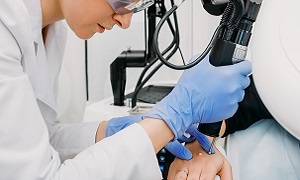
Excisional surgery
Radiation therapy


